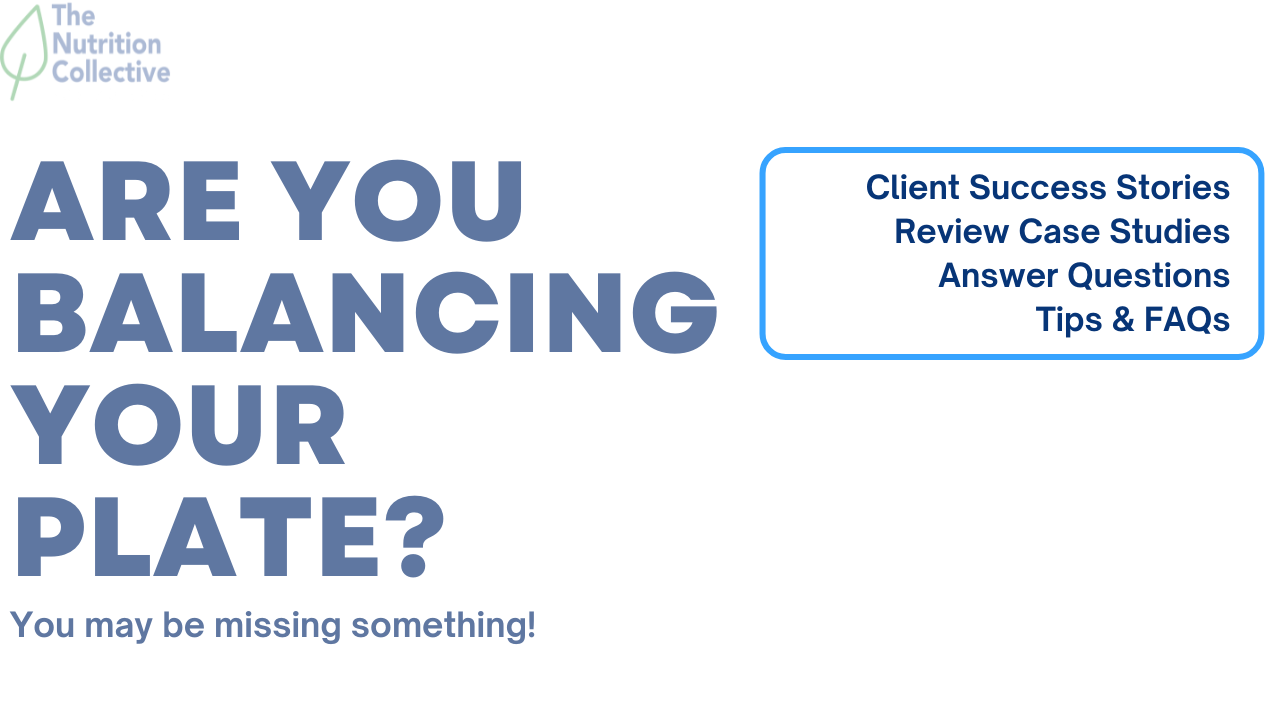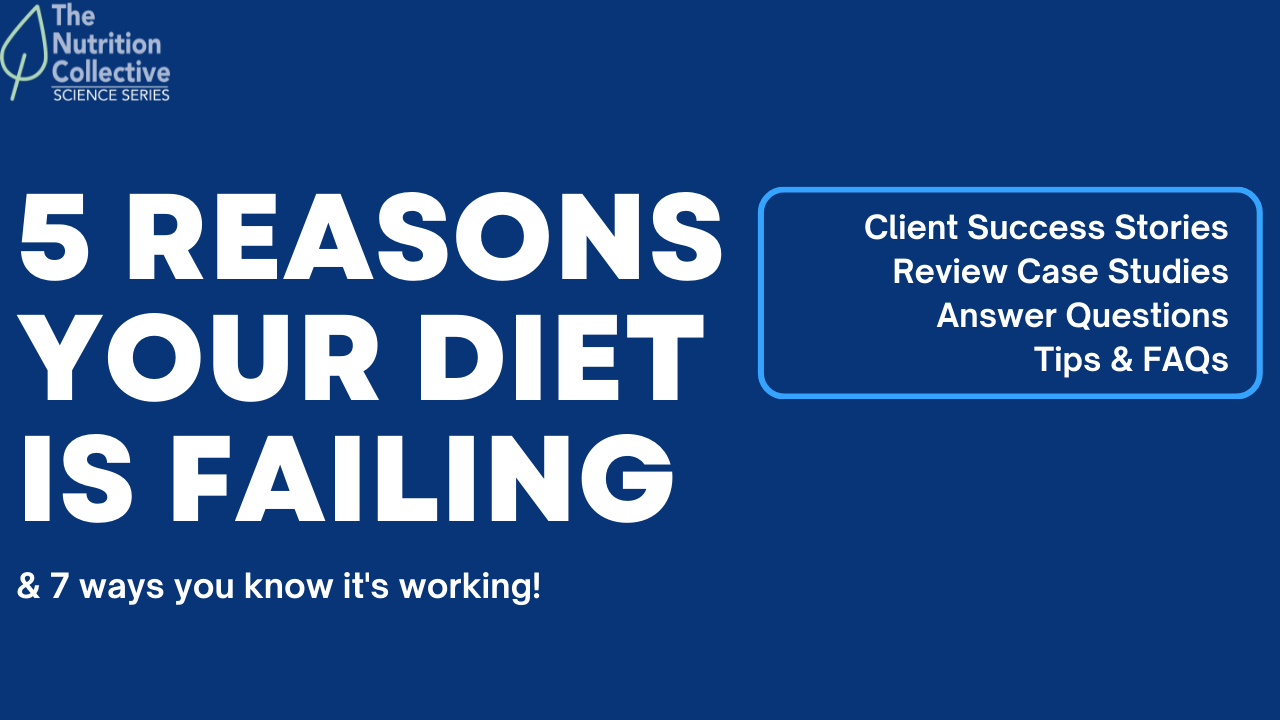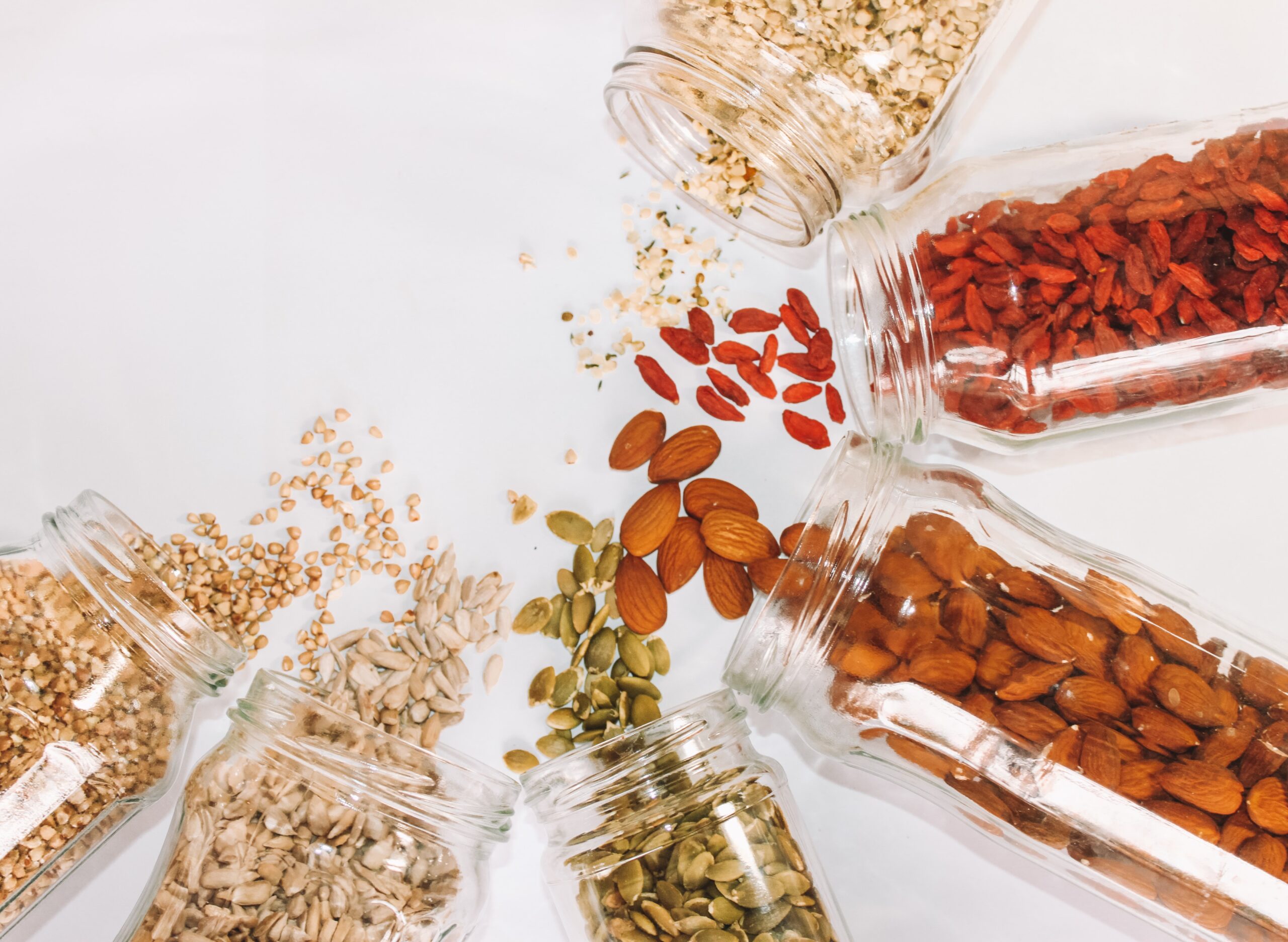Trying to find good nutrition information but overwhelmed by all of the crazy tips, trends, and fads? You’re not alone! Whether it’s about carbs, protein, snacking, or something else, nutrition myths are spreading fast out there and can be easy to fall for. Let us set the record straight by busting the top 3 nutrition myths.
Spreading Nutrition Misinformation
These days it can feel like there is a ton of nutrition info out there and it can be hard to know what’s true and what isn’t. Unfortunately, we live in the age of technology where trends and fad diets can go viral, usually spreading misinformation with it. Many trending diets are based on past fad diets (i.e., the keto diet is pretty much the Atkins diet in disguise) or, a tiny bit of research is blown up and spread across the internet, which often means the original results are twisted and changed through a game of whispers.
The best way to navigate through all of this chatter is to learn how to be a good judge when it comes to researching new info, rely on trusted sources, and talk to nutrition experts whose job it is to know the facts.
Keep reading to learn the truth about some of the biggest nutrition myths as well as learn how to sift through some of this misinformation.
Busting the Top 3 Myths
Myth #1: Carbs Cause Weight Gain
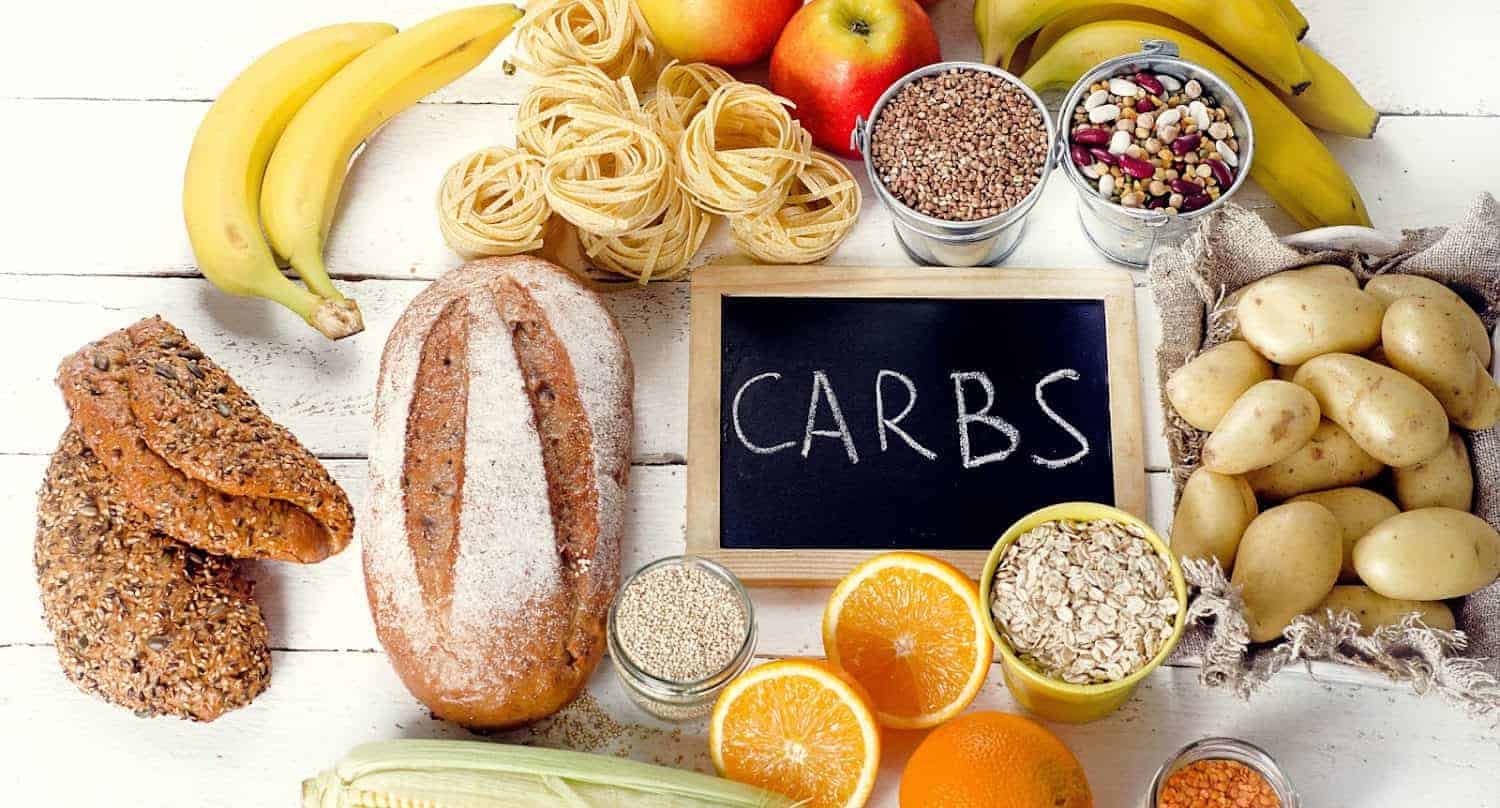
In recent years, carbs have been given a bad rep. Many believe this macronutrient will cause obesity, diabetes, and even diseases such as cancer and heart disease. Luckily, these beliefs are just fears based on myths and twisting of words. To help break it down, let’s first go over what exactly carbs are.
You’ve probably heard the “carbs are bad” myth around foods like sugar, soda, pastries, and white bread. However, the carbs in these foods mainly fall under just one of the three categories of carbs. There are sugars (which usually contain the foods listed above), starches, and fiber.
- Sugar is the simplest form of carbs and is digested very rapidly. They’re best for fast acting energy and are often known for their sweet flavor. Not only are sugars found in demonized white sugar, but can also be found in other food like fruit (and no, fruit is not too sugary or unhealthy, but that’s a myth to bust for another day).
- Starches include carbs like grains, potatoes, bread, and pasta. They usually contain other nutrients and take a bit longer than sugar to break down.
- Fiber is a highly complex carbohydrate found in fruits, vegetables, legumes, and whole grains. Some fibers are soluble and others insoluble, which describes whether it can be broken down in the digestive system. Both help to slow digestion and take the longest to break down of the three categories.
Carbs get their bad rep from the simple sugar in the first category. This is because when they are eaten on a very regular basis, they can cause a rise in the level of glucose in the body. Over time this can lead to insulin resistance and type 2 diabetes.
Glucose is also stored as fat in tissues, which isn’t always a bad thing because we use this stored glucose as a reservoir for energy. Eating lots of simple sugar can cause an excess of glucose storage, though, which is why carbs are deemed as “bad”. That’s not to say simple carbs can’t be a part of a healthy diet; they should be enjoyed mindfully in moderation.
In all, as long as you’re eating moderate amounts of complex carbs such as vegetables, fruit, whole grains, and legumes which are high in healthy nutrients including fiber, antioxidants, and vitamins and minerals, carbs should not be an issue for you or a culprit of weight gain. In fact, lifestyles that contain these high fiber carbs have even been associated with a reduced risk of obesity, diabetes, certain cancers, and heart disease (1).
Myth #2: The More Protein You Consume, The More Muscle You Are Going To Build
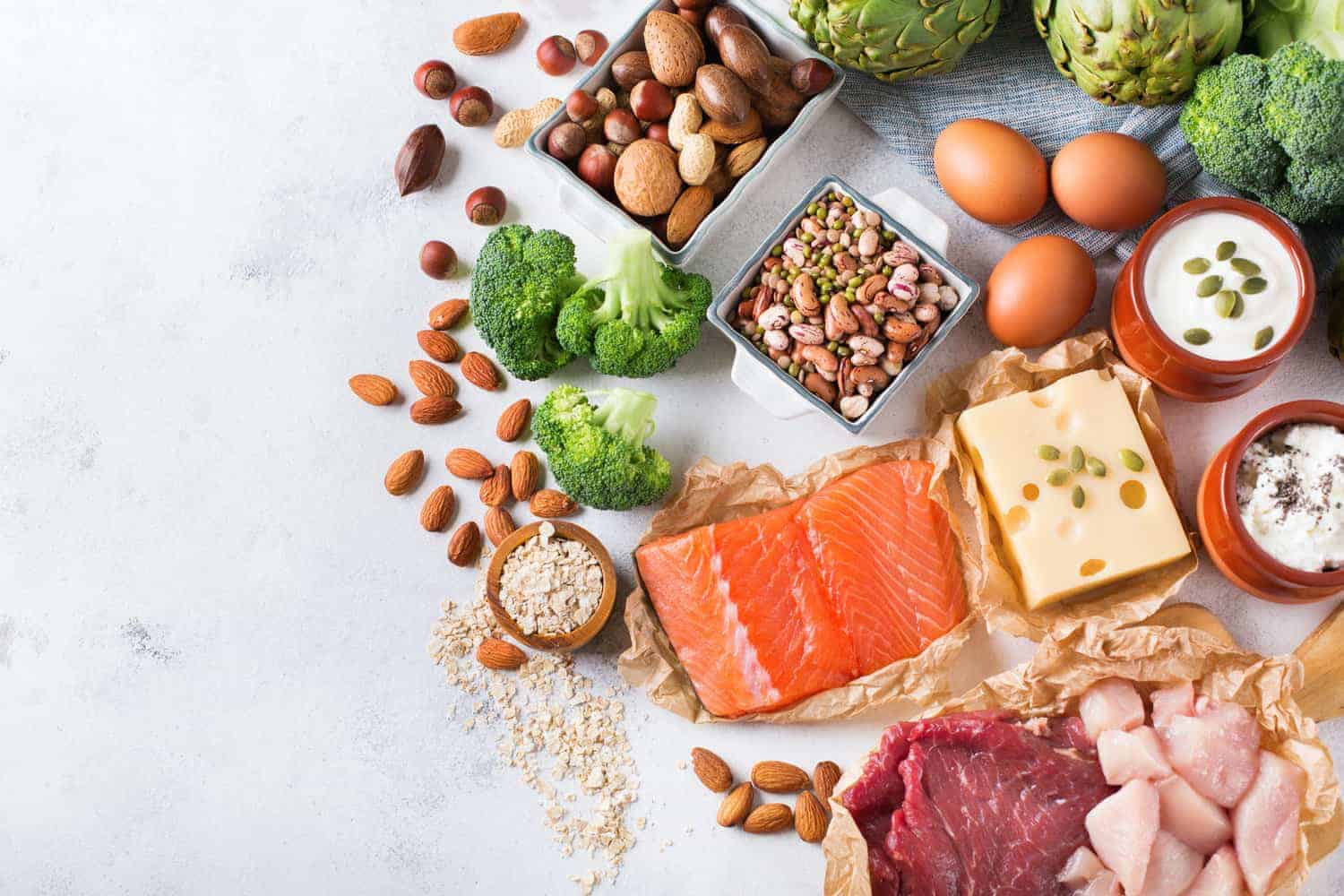
Sorry to break it to you, but it’s just not that easy. Many people have fallen for the high protein hype, believing that protein alone will lead them to have big, strong muscles. Unfortunately, this is just too good to be true.
To gain muscle, you need to exercise, especially with strength training. When we engage in muscle strengthening, we are tearing muscle fibers that will then need to be repaired during recovery. These damaged fibers recover through fusion, which also increases the mass and size of muscles. While protein helps with muscle cell recovery and building with amino acids (the building blocks of muscle), it will not build muscle mass without the process of muscle tear and repair. There’s even a study that tested this hypothesis and the results were clear. It found that over the course of six months with no change in muscle strengthening exercise, eating “extra protein had no impact on the participant’s muscle mass, strength, or power” (2).
Research also states that eating extra protein on top of your daily protein needs will not give you more muscle mass, either. This study compared the effects of protein supplementation on lean body mass and strength gains. It found that supplementing protein on top of a normal, balanced diet “minimally enhanced gains in lean body mass of healthy young men, and there was no enhancement of gains in strength” (3). Instead, excess protein is just stored the same way as excess carbohydrates while the rest of the excess protein compounds are excreted in our urine. Learn more about your individual protein requirements here.
So, while protein is an awesome macro-nutrient for post-workout recovery, cell function, and even muscle building, protein cannot help build muscles that have not been exercised while overeating protein will not boost your muscle mass, either.
Myth #3: You Shouldn’t Be Snacking
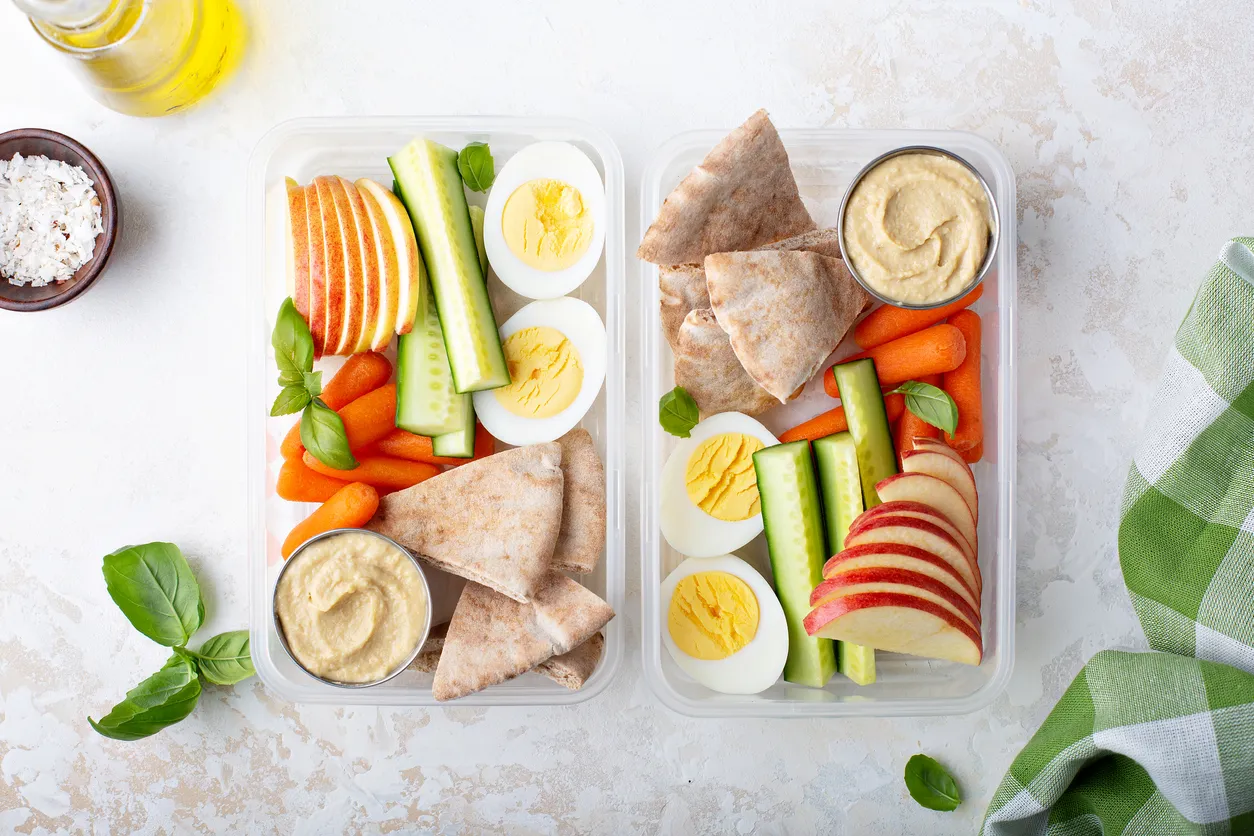
As a wellness coach and just a human that likes to eat, I can tell you that the belief that snacking is bad is the furthest thing from the truth. I like to call snacks “the stepping stones between meals”. That means that when we eat snacks in between meals, we get a little energy boost to tide us over. This keeps us from getting super hungry before eating and also prevents overeating during mealtimes.
Moreover, snacks can promote healthy blood sugar levels. Snacks can help stabilize blood sugar by preventing it from dropping too much between meals. High fiber, high protein snacks are best for this because they both slow down digestion to prevent a large fluctuation of blood sugar levels. This is especially important for people who have diabetes to keep in mind.
Snacks are also a great opportunity to add in extra nutrients that you may not be fitting into just your meals. This can be from things like antioxidants from fruit and veggies, healthy fats from nuts and avocado, or protein from peanuts and Greek yogurt.
Another benefit that we can get from snacks is post-workout recovery. Snacks can help the body recover from exercise because they replenish glucose storage, called glycogen, and assist with muscle repair. Consuming a post-workout snack that includes both carbohydrates and protein within 15 to 30 minutes after exercising will promote the best results.
This doesn’t mean you always have to have a snack, but keep in mind that it is okay (and good!) to allow yourself to refuel between meals if you need to.
Be a Good Judge
Don’t let all of the nutrition misinformation out there fool you. Use your better judgement and follow some of these tips when it comes to deciphering if what your reading is really true:
- If it seems too good to be true, it probably is. There is no magic wand in nutrition. It’s all about making small, realistic changes that will benefit you in the long run.
- Very rarely is one food or food group the culprit for a bad outcome. Many factors go into every component of our health, so blaming one factor usually doesn’t add up.
- Consider the source. Are they trying to sell you something? If they are, best to steer clear.
- You know better than anyone else what is best for your body.
Looking for more good nutrition knowledge? Below you’ll find some trusted sources to get the most accurate and up to date health and nutrition information:
Get Started with Holistic Fitness and Wellness
Wellness means something different to every individual. Being well gives you the ability to reach your personal goals, whatever they may be.
After all, when your body, mind, and soul are cared for holistically, you’re able to pursue and meet your goals with less resistance. And you can continually live a healthy, thriving, and sustainable life.
With Champ City, I help you determine a tailored and personalized approach to wellness by reflecting on your needs through a collection of Our personalized programs allow you to tune in with yourself and identify which ones require most of your attention. Strengthening each of these aspects will help provide an excellent foundation for living your best, healthiest life.
Sources
- Romagnolo DF, Selmin OI. Mediterranean Diet and Prevention of Chronic Diseases. Nutr Today. 2017;52(5):208-222. doi:10.1097/NT.0000000000000228 https://pubmed.ncbi.nlm.nih.gov/29051674/
- Bhasin S, Apovian CM, Travison TG, et al. Effect of Protein Intake on Lean Body Mass in Functionally Limited Older Men: A Randomized Clinical Trial. JAMA Intern Med. 2018;178(4):530-541. doi:10.1001/jamainternmed.2018.0008 https://pubmed.ncbi.nlm.nih.gov/29532075/
- Reidy PT, Borack MS, Markofski MM, et al. Protein Supplementation Has Minimal Effects on Muscle Adaptations during Resistance Exercise Training in Young Men: A Double-Blind Randomized Clinical Trial. J Nutr. 2016;146(9):1660-1669. doi:10.3945/jn.116.231803 https://pubmed.ncbi.nlm.nih.gov/27466602/


